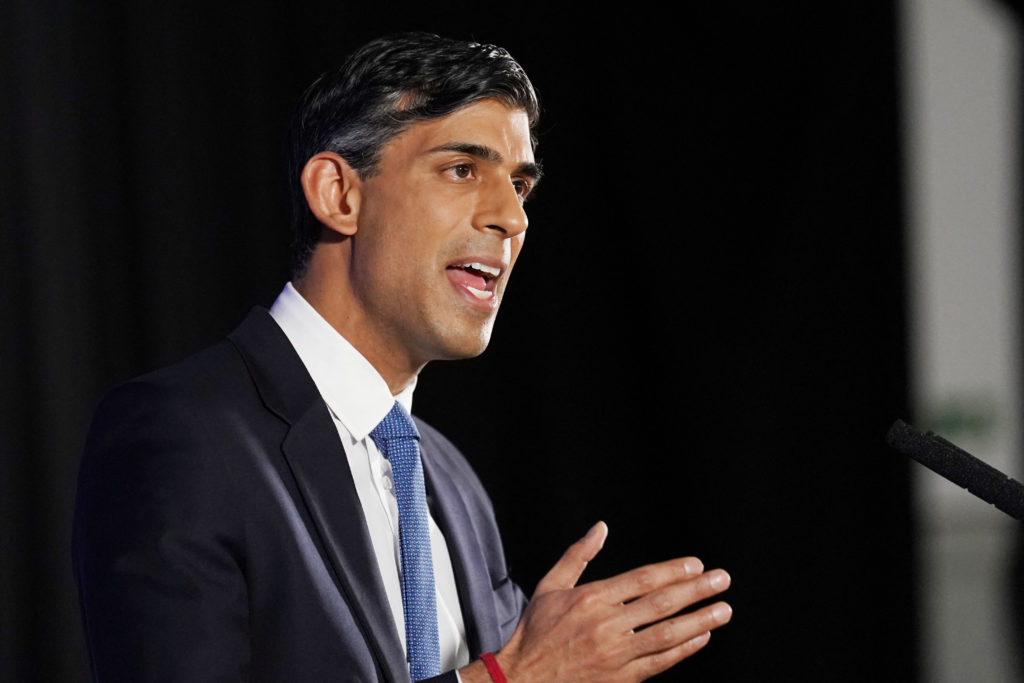In a crucial call to action, campaigners and progressive Members of Parliament are urging UK Chancellor Rishi Sunak to prioritize the cancellation of debts owed by Ukraine as part of a comprehensive aid package aimed at fortifying the country against the ongoing Russian invasion. The campaigners argue that alleviating Ukraine’s “crippling” debt burden is not only a humanitarian imperative but also a strategic move to put the Ukrainian government on a stable financial footing.
Ukraine’s debt has escalated significantly since the conflict with Russia commenced in 2014, reaching alarming proportions. To address the urgent need for financing its armed forces, Ukraine recently announced its intention to sell war bonds. This move underscores the dire economic consequences of the prolonged conflict and the pressing need for international support.
The issue of debt cancellation for Ukraine has gained prominence within the UK political landscape, with Green MP Caroline Lucas raising the matter in Parliament. Lucas emphasized the urgency of lifting Ukraine’s considerable debt burden to provide meaningful support to the government and facilitate its ability to navigate the economic challenges posed by the conflict. The proposal advocates for aid to Ukraine on a non-commercial basis, recognizing the extraordinary circumstances the country finds itself in.
Labour MP Clive Lewis echoed the sentiment, highlighting that canceling Ukraine’s debt is one of the most straightforward actions the UK can take to support the nation in its resistance against Russian aggression. He emphasized the collective power of Western countries, through institutions like the International Monetary Fund (IMF), to significantly alleviate Ukraine’s $94 billion debt burden.
The International Monetary Fund holds a substantial portion of Ukraine’s debt, totaling around $13.4 billion (£10.17 billion). Campaigners argue that, as a member of the IMF’s executive board, the UK should leverage its influence to encourage other countries to join in the initiative. This effort aligns with broader calls for solidarity with Ukraine and the recognition that financial stability is integral to the country’s ability to withstand aggression and embark on the challenging path of post-war reconstruction.
Professor Mary Kaldor, an expert in Global Governance at the London School of Economics, emphasized the crucial role of financial support, including debt cancellation, for Ukraine’s remarkable resilience against Vladimir Putin’s aggression. She stressed the need to relieve Ukraine from the burden of debt servicing, allowing the nation to focus on recovery without undue financial constraints.
The chair of the Ukrainian civil network OPORA, Olga Aivazovska, emphasized that British assistance in defending the country, ensuring financial stability, and supporting recovery would be a strategic investment in a peaceful 21st century. The push for debt cancellation aligns with a broader narrative that recognizes the significance of international solidarity and financial backing in the face of geopolitical challenges.
This issue has now reached the corridors of power, with Liz Truss stating in Parliament that Chancellor Sunak has been actively discussing the matter with G7 finance ministers. Truss highlighted the commitment to support Ukraine, both in resisting Russian aggression and rebuilding the country after the devastating invasion. The deliberations at the G7 level underscore the international dimension of the call for debt relief as a crucial component of aiding Ukraine in these challenging times.



